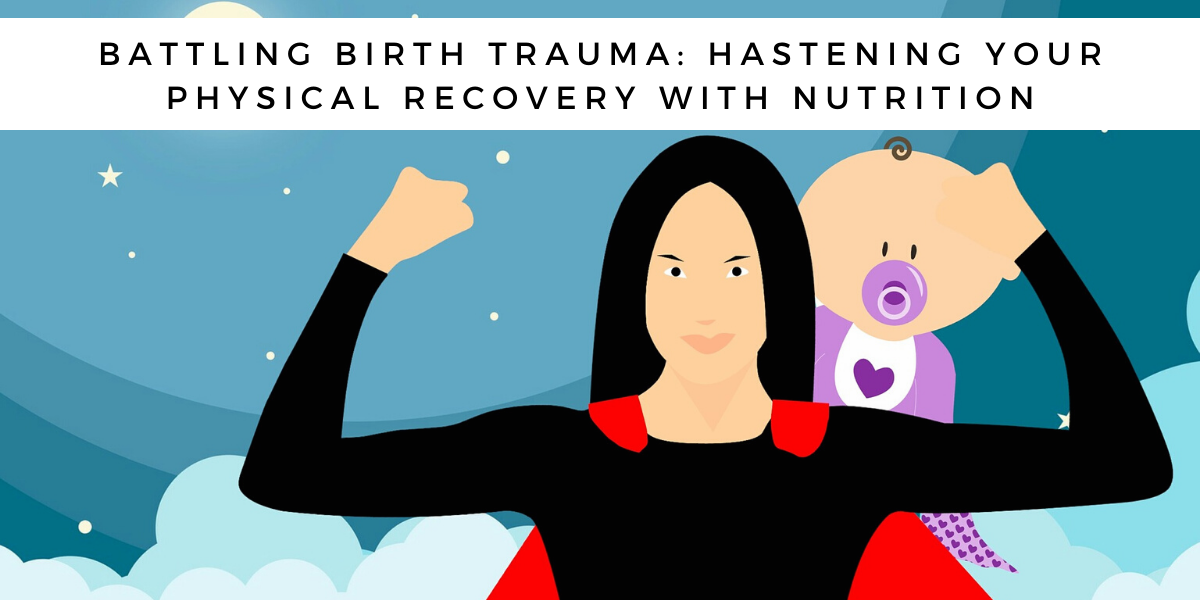Recovery after birth trauma isn’t easy. It probably won’t happen spontaneously. Waiting to see what happens rarely gets you where you want to be as fast as you want to get there. The psychological effects of birth trauma are significant and extremely important to address, but what I want to focus on here are the physical effects. While it’s never too late to help the physical impact of birth trauma, the key to a more rapid recovery is seeking help as early as you can.
As much as people talk about it being a “natural process”, birth can be brutal.
The body really takes a beating during childbirth. Giving birth vaginally is like running a marathon, and birth trauma can be like a major sporting injury. Sometimes finishing the marathon is not in everyone’s best interests, and a Caesarean section is needed – in which case there is the added trauma of surgery to the body on top of the exhaustion of the marathon. When you go through little or no labour and have a Caesarean section, this in itself is a huge physical impact, especially if there are complications like high blood loss. The greater the trauma, the less likely you are to bounce back.
Recovery from the physical aspects of birth trauma itself is like a marathon, not a sprint.
In other posts I will write about starting this recovery regardless of how far down the track you are. But here I want to talk about getting off to a good start recovering when your birth experience hasn’t been what you hoped for.
As I said, physical recovery from birth trauma is like recovering from a major sporting injury (except probably tougher!) You won’t have a personal chef to whip you up therapeutic meals, or a masseuse on stand-by to knead the condition back into your muscles. But there are some simple tips that you can take on in the very first week after birth, and I’m going to start by talking about nutrition (for tips on recovery from the physical side, jump to this article).
Load up on water
That’s – at least 2.5 L/day, and probably 3L or more when you begin breastfeeding, until your body adjusts. Your fluid levels are DOWN postpartum due to little drinking during labour, perspiring like a beast, and blood loss. It’s beyond a marathon: it’s blood, sweat and tears! Your body is also becoming a lactating machine, and regular breastfeeding drains you in more ways than one.
Prioritise protein
There is a lot of healing to be had in the days and weeks after giving birth, increased by many times if you had a Caesarean. Rebuilding your tissue requires a good supply of protein above all things. You need a good amount of protein 3 meals a day. A morning smoothie with added protein powder is ideal because you can drink it on the go. You are likely to need at least 20g three times a day, but even better, get your individual requirements checked.
Vitamin C
Vitamin C is critical for forming collagen, the bricks-and-mortar to rebuild your body. It is hard to get too much from food, and the more raw fruit and vegetables you can eat, the better. Fresh juices or green smoothies can be handy here.
Zinc
Zinc is the worker bee on the construction site when you are rebuilding tissue – and you need plenty of it! Good amounts are found in seafood, red meat and chicken, with a certain amount in eggs. Sunflower seeds and pumpkin seeds are high too, but it’s harder to absorb, so if you are vegetarian, you are at even more risk of not getting enough.
The stress of going through birth trauma is huge, and it’s hard feeling the pressures of all the things you “should” be doing.
But take it day by day. If you didn’t manage today, try again tomorrow. Just don’t give up. Taking care of yourself now will help things look a little brighter a lot quicker.
If you would like to make things a little easier for yourself, book a nutrition session with us online – you can both book online and do it online! You need supports from all sides at the moment, and your nutrition is no exception.

